In this article, we profile the 30 most affordable online master’s in food science and nutrition programs.
Food science and human nutrition programs are available online if you know where to look, but finding accredited, ranked, and affordable programs that are also available online can be challenging. However, through research and data collection, we uncovered the most affordable online master’s in food science and nutrition programs from the nation’s top schools. Our ranking and methodology are listed below.
30 Affordable Online Master’s in Food Science and Nutrition Programs Methodology
We reviewed 64 colleges and universities listed by the Center for Educational Statistics (NCES) College Navigator and reputable online sources that offered master’s in food science online degrees or closely related nutrition programs. We narrowed our original pool of schools by applying the following criteria: accreditation (regional and/or national), institution and/or program rankings with at least one major publication, focusing primarily on U.S. News and World Report, and affordability. We selected schools with a combined graduate tuition and fees of less than $32,000 per year. We then listed our 30 selected programs according to raw affordability.
Below are the resulting selections for our 30 most affordable online master’s in food science and nutrition programs.
#30 – American University
Online Master’s in Nutrition Education
Washington, District of Columbia
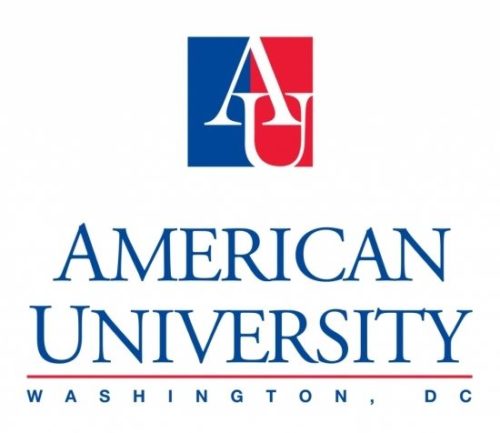
Graduate Tuition/Fees: $31,113
American University starts off our list of most affordable online nutrition programs. This particular program is focused on nutrition education, which prepares graduates for a variety of careers such as public health departments, nonprofits, schools, USDA, health clubs, food companies, and more. The entire program is online and prepares students to become a Certified Nutrition Specialist. The institution’s graduate census showed 93% of graduates from the program were employed within six months. No prior nutrition experience is required, making this unique program an excellent choice for those with a passion for nutrition seeking a career change, or for current nutrition experts to upgrade their skills. U.S. News and World Report ranks American University #77 in national universities.
#29 – Oregon Health & Science University
Online Master’s in Food Systems and Society
Portland, Oregon

Graduate Tuition/Fees: $26,987
Oregon Health and Science University offers an online master’s in food science with a particular focus on food systems and society. The main goal of the program is for students to develop a deep understanding of food systems as analyzed through the lens of race, gender, and class – and how through that analysis our food systems can be improved for all people. As with many parts of society, food systems are stratified and unequal. By adding new knowledge to the field of food systems, students can fight for food equality. The degree is delivered mainly online with two short on-campus residencies per year, which allow students to complete the degree from their own location while keeping their commitments.
#28 – Northeastern University
Online Master’s in Regulatory Affairs of Food and Food Industries
Boston, Massachusetts
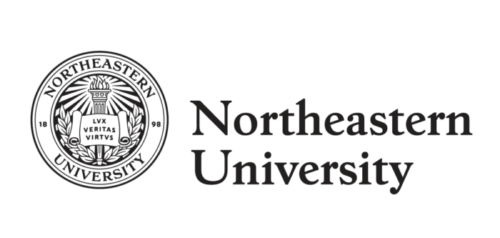
Graduate Tuition/Fees: $25,085
Northeastern University offers one of the top online food science programs through its College of Professional Studies. The focus of the program is to prepare students for the regulatory industry through an interdisciplinary curriculum that covers life science, food science, nutrition, economics, public policy, and more. Graduates are well-positioned for lead position in food regulatory affairs and work for several different industries. Candidates are required to submit 500-1000 word statement of purpose, resume, unofficial transcripts, and two letters of recommendation. Standardized test scores are not required. Backed by a stellar academic reputation, Northeastern ranks #40 in national universities by U.S. News and World Report.
#27 – University of New England
Online Master’s in Applied Nutrition
Biddeford, Maine
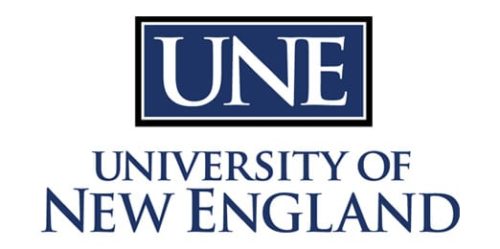
Graduate Tuition/Fees: $24,334
Ranked #27 on our list of most affordable online nutrition programs, the University of New England’s 36-credit offering is delivered 100% online for maximum flexibility and convenience for working professionals. The coursework is divided into six core classes, along with five electives that allow the student to specialize in a sub-field such as obesity and health promotion, nutrition and disease prevention, sustainable nutrition, or a customized plan. Candidates must possess a regionally accredited bachelor’s degree with at least a 3.0 GPA. It is recommended applicants have previous coursework in nutrition and/or biology and statistics. The University of New England ranks #246 in national universities, according to U.S. News and World Report.
#26 – Abilene Christian University
Online Master’s in Nutrition
Abilene, Texas

Graduate Tuition/Fees: $22,356
Abilene Christian University provides one of the most affordable online nutrition programs in the online education space. The program is housed within the ACU Department of Kinesiology and Nutrition and prepares graduates to become registered dietitians. The time-frame to complete the program is just 1-2 years and features coursework such as nutrition and diabetes, nutrition and poverty, and nutrition education and counseling. The overall emphasis of the curriculum focuses on community and poverty within the context of nutrition. Abilene Christian University ranks in multiple U.S. News and World Report categories such as #12 in regional universities West and #8 in best value schools.
#25 – Pennsylvania State University World Campus
Online Master’s in Nutritional Sciences
University Park, Pennsylvania

Graduate Tuition/Fees: $22,186
Penn State University World Campus offers an online master’s in food science focusing on giving students the knowledge and tools to become food and nutrition experts that use evidence-based information and data to improve health and nutrition outcomes across the life course. The online program also imbues students with leadership and critical thinking skills needed to succeed on the job and be seen as thought leaders within the industry. Lead by the Department of Nutritional Sciences, the online program is for current registered dietitians interested in enhancing their careers through obtaining a graduate degree. Graduates have gone on to work in top positions across several industries.
#24 – Simmons University
Online Master’s in Nutrition and Health Promotion
Boston, Massachusetts

Graduate Tuition/Fees: $21,818
Ranked #24 on our list of most affordable online nutrition programs, Simmons University offers a graduate curriculum culminating in a master’s of science in nutrition and health promotion that gives students a deep understanding of nutrition, wellness, and fitness. The degree can be used to qualify for top positions across of variety of industries such as government, non-profit, private business, education, and health care. Students matriculate to the program with backgrounds in related areas like nutrition, biology, health science, kinesiology, and the like. The curriculum allows students to choose from specialty tracks in research or entrepreneurship. Simmons is ranked #125 in national universities according to U.S. News and World Report.
#23 – Benedictine University
Online Master’s in Nutrition and Wellness
Lisle, Illinois

Graduate Tuition/Fees: $19,409
Benedictine University offers one of the top online food science programs featuring affordable tuition and flexible online course delivery that can be completed in just 2.5 years. Students take courses on a multitude of issues impacting and influencing nutrition and wellness, including physiology and biology, food systems, food policy and regulation, and more. Courses may include complimentary nutrition therapies, nutrition communication through technology, introduction to wellness, and science of sports nutrition. Applicants must possess a regionally accredited bachelor’s degree with a 3.0 minimum GPA. A background in nutrition and wellness is not required to apply. Benedictine is ranked #293 in national universities by U.S. News and World Report.
#22 – Michigan State University
Online Master’s in Food Safety
East Lansing, Michigan
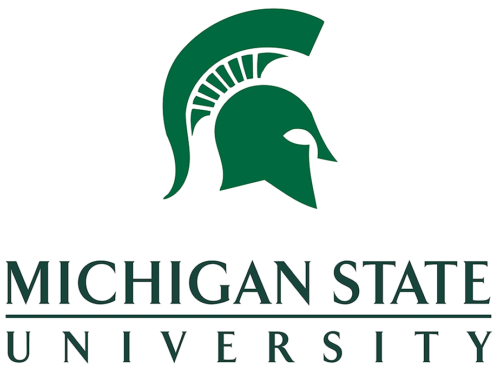
Graduate Tuition/Fees: $18,858
Ranked as one of the top online food science programs, Michigan State University’s food safety program is a master’s in science, which means the curriculum is based heavily on science, with components of food law and policy. The program is designed for food science professionals seeking top positions that often require a master’s degree. Students should be mid-career and have management experience when applying. The average time to complete the degree is three years, with a maximum allotted time of five years. Featured core classes include evolution and ecology of foodborne pathogens, food safety toxicology, and intro to food safety and professional development. U.S. News and World Report ranks Michigan State #84 in national universities.
#21 – Virginia Polytechnic Institute and State University
Online Master’s in Food Safety and Biosecurity
Blacksburg, Virginia

Graduate Tuition/Fees: $15,972
Virginia Tech offers a master’s in agriculture and life sciences with a concentration in food safety and biosecurity that is similar to a master’s in food science and nutrition online. This degree is for public health professionals and other related workers who want to understand the microbiological safety issues surrounding food and water, along with food safety policies and laws that govern the industry. The 30-credit degree features courses such as animal and plant biosafety and biosecurity, applied food microbiology and sanitation, and global food laws and regulations. Virginia Tech has an excellent academic reputation and ranks #74 in national universities, according to U.S. News and World Report.
#20 – National University of Natural Medicine
Online Master’s in Nutrition
Portland, Oregon
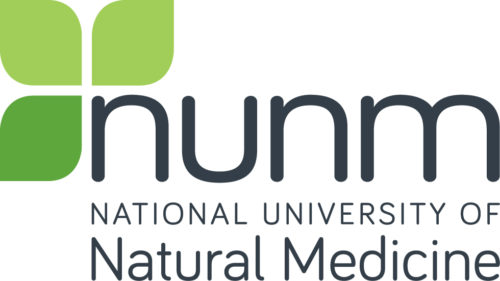
Graduate Tuition/Fees: $15,927
National University of Natural Medicine offers a master’s in food science and nutrition online focusing on using food as medicine. The program offers several concentration areas including clinical nutrition, community nutrition, culinary nutrition, and environmental nutrition. The curriculum is delivered asynchronously and allows students to complete coursework on their own schedules. Classes may include applied medical nutrition therapy, cultural humility and food justice, and the psychology of eating. Completing this degree fulfills the academic portion for Certified Nutrition Specialist. Candidates must possess a regionally accredited bachelor’s degree with a 3.0 GPA. Prerequisites include general biology, chemistry, statistics or algebra, and psychology.
#19 – Canisius College
Online Master’s in Applied Nutrition
Buffalo, New York

Graduate Tuition/Fees: $15,480
Canisius College offers master’s in food science and nutrition online through its School of Education and Human Services. In addition to the general degree, students can select a specialty track in obesity and eating disorders, or fitness and sports nutrition. Each track blends academic research with applied skills needed to succeed on the job. The program can be completed in as little as one year, with start dates in the fall, spring, and summer semesters. Applicants must possess a bachelor’s degree to apply. Preferably, candidates will be currently licensed dietitians or have coursework in the sciences. Those without are welcome to apply, but may have to complete prerequisites. Canisius is ranked #19 in regional universities North by U.S. News and World Report.
#18 – University of Saint Joseph
Online Master’s in Nutrition
West Hartford, Connecticut

Graduate Tuition/Fees: $15,084
Ranking as one of our most affordable online nutrition programs, the offering at the University of Saint Joseph is comprised of 30 credits in science-based coursework and can be fully customized according to the student’s career and personal interests. Admission requirements include a regionally accredited bachelor’s degree and a minimum 3.0 GPA. Students must also submit all transcripts, two letters of recommendation, and a letter of intent. The GRE is not required for admission, but applicants may submit their scores should they feel it provides an accurate reflection on their academic ability. Students without a bachelor’s degree in nutrition should possess passing grades in basic nutrition, biochemistry, and physiology. Saint Joseph’s ranks #147 in national universities by U.S. News and World Report.
#17 – University of Arizona
Online Master’s in Applied Nutrition
Tucson, Arizona
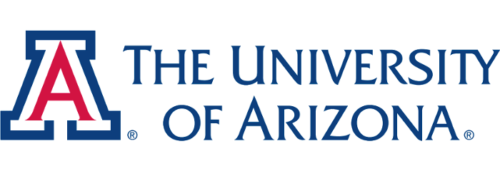
Graduate Tuition/Fees: $13,271
The University of Arizona offers an online master’s in food science designed for working professionals across the spectrum including registered dietitians, health professionals, and those pursuing a nutrition-related career. Housed within the College of Agriculture and Life Sciences, the 30-credit program includes online classes and a 270-hour supervised practicum that allows students to gain experience in the field. The program offers maximum flexibility and efficiency and can be completed in just 18 months. Candidates should possess a bachelor’s degree in nutrition with a 3.0 minimum GPA. Other undergraduate majors, such as biochemistry and anatomy/physiology, are considered. The University of Arizona ranks #117 in national universities according to U.S. News and World Report.
#16 – Colorado State University
Online Master’s in Food Science and Nutrition
Fort Collins, Colorado
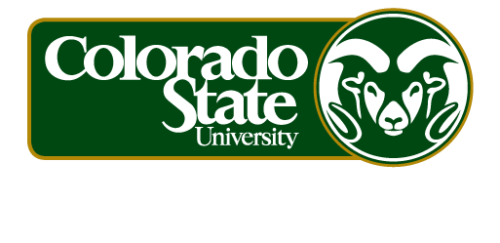
Graduate Tuition/Fees: $12,871
Making our list of most affordable online nutrition programs, the degree at Colorado State University with a specialization in advanced nutrition focuses on the relationship between the food we eat and how it impacts individual and public health outcomes across the life course. The program is used for professional preparation towards a career in nutrition or as training towards doctoral studies. Administered by the Department of Food Science and Human Nutrition, students engage in coursework that blends scientific and nutritional theory with practical skills needed on the job. It should be noted that the online program is designed for registered dietitians. U.S. News and World Report ranks Colorado State #166 in national universities.
#15 – Arizona State University
Online Master’s in Nutritional Science and Dietetics
Tempe, Arizona

Graduate Tuition/Fees: $12,608
Arizona State’s online master’s in dietetics is similar to an online master’s in food science that can be earned through the completion of 10 distance courses totaling 30 credits. The program is designated for registered dietitians seeking advanced skills and knowledge in the areas of project management, nutrition research, and critical nutrition inquiry. The curriculum prepares graduates for top nutrition careers across several industries. Candidates should possess at least one year of experience as a registered dietitian but do not need to be currently active in the field when applying. Arizona State ranks in several U.S. News and World Report categories, including #117 in national universities and #145 in best value.
#14 – SUNY Oneonta
Online Master’s in Nutrition and Dietetics
Oneonta, New York

Graduate Tuition/Fees: $12,497
SUNY Oneonta offers a fully online master’s in food science resulting in eligibility to sit for the national examination to become a registered dietitian. The 36-credit program can be completed in just one year when attending full-time. Curriculum emphasizes community health and health intervention and follows guidelines established by the Accreditation Council for Education in Nutrition and Dietetics. Students are required to attend a four-day orientation prior to the summer session to get oriented to the program. All courses are online and will be conducted in a synchronous manner, where students view a live lecture led by the SUNY Oneonta faculty that teach on-campus courses. SUNY Oneonta is ranked #52 in regional universities North by U.S. News and World Report.
#13 – University of Wisconsin
Online Master’s in Clinical Nutrition
Madison, Wisconsin

Graduate Tuition/Fees: $12,180
The University of Wisconsin Madison offers a master’s in food science and nutrition online through its College of Agriculture and Life Sciences that features rigorous scientific inquiry, preparing graduates to become leaders in clinical nutrition and dietetics where their main function is to evaluate and translate research that informs clinical nutrition, public health policy, and research into the field. The program is best for those with a strong academic or professional background in clinical nutrition. The program is offered entirely online for the convenience of busy working professionals. The coursework is divided into three areas: core courses, clinical nutrition, and professional skills. The institution is currently ranked #13 in top public schools.
#12 – The University of Texas
Online Master’s in Nutritional Science
Austin, Texas
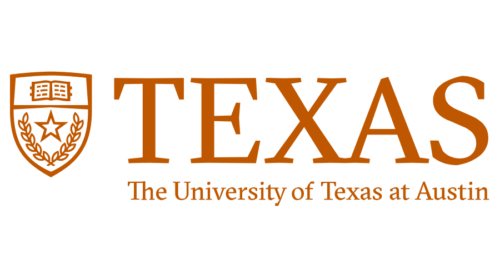
Graduate Tuition/Fees: $11,998
The University of Texas at Austin offers a master’s in food science and nutrition online for busy working professionals seeking expertise in the nutrition field. The degree is appropriate for any individual with interest in seeking advanced skills and concepts in nutrition that may be beneficial on an occupational level. Many students come from a variety of backgrounds like education, health care, and the private sector. The program offers tracks in health promotion and disease prevention and biochemical and functional nutrition. Students can complete the entire degree online in just one year and have the option to forego a thesis. UT-Austin is ranked #48 in national universities by U.S. News and World Report.
#11 – North Carolina State University
Online Master’s in Nutrition
Raleigh, North Carolina

Graduate Tuition/Fees: $11,673
North Carolina State University ranks #11 on our list of most affordable online nutrition programs. This non-thesis offering requires 36 credits of coursework, including up to six credits of practicum experiences in the field, working with clients and organizations. The program focuses on science curriculum and includes tracks in feed science, or human nutrition, food, and bioprocessing. Candidates should hold a bachelor’s of science in a science-related major and a 3.0 minimum GPA along with GRE scores at or above the 30th percentile. The interdisciplinary program offers courses from several departments such as Animal Science, Poultry Science, and the College of Veterinary Medicine. NC State ranks #4 in top public schools by U.S. News and World Report.
#10 – Kansas State University
Online Master’s in Food Science
Manhattan, Kansas
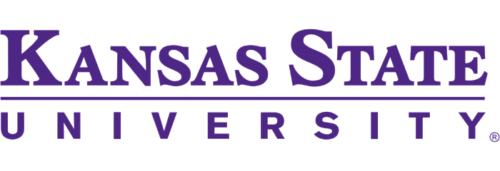
Graduate Tuition/Fees: $11,277
Kansas State University starts off our top ten online master’s in food science. This program focuses on food safety, processing, and engineering and is housed within the university’s College of Agriculture. The curriculum prepares graduates for a variety of top careers in food science such as food safety and microbiology, quality assurance, operations management, research and development, and much more. Courses include advanced food chemistry, quality assurance of food products, and regression and analysis of variance. Candidates must have a bachelor’s degree with a 3.0 GPA along with several science prerequisites. Kansas State ranks #162 in national universities by U.S. News and World Report.
#9 – University of Georgia
Online Master’s in Food Technology
Athens, Georgia
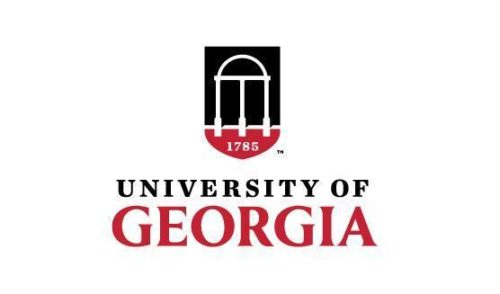
Graduate Tuition/Fees: $11,168
Ranking number 9 on our list of most affordable online food science programs, The University of Georgia’s program is administered by the College of Agriculture and Environmental Sciences and focuses on improving food through technology. The program focuses on food technology competencies such as food technology, packaging, processing, ingredients, and policy. Program graduates have gone on to successful careers as R&D directors, quality assurance managers, senior process engineers, and more. Candidates from all academic backgrounds are welcome and should possess at least two years of work experience in the food industry. Backed by a strong reputation, U.S. News and World Report ranks the University of Georgia #50 in national universities.
#8 – University of South Florida
Online Master’s in Public Health in Nutrition and Dietetics
Tampa, Florida
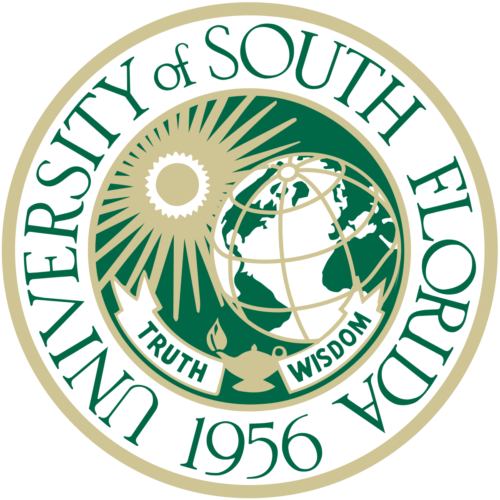
Graduate Tuition/Fees: $10,428
The University of South Florida offers one of the top online food science programs through its College of Public Health. The nutrition and dietetics concentration is for those accepted into the internship program or for registered dietitians with at least two years experience. The curriculum focuses on nutrition therapy, nutrition education, community practice and evaluation, and theoretical frameworks that improve individual and community health outcomes across the life course. Classes may include history and systems of public health, methods of nutritional assessment, and principles of leadership and management of food and nutrition. USF currently ranks #104 in national universities by U.S. News and World Report.
#7 – Bowling Green State University
Online Master’s in Food and Nutrition
Bowling Green, Ohio

Graduate Tuition/Fees: $9,831
Bowling Green University ranks among the top affordable online nutrition programs due to its value-based tuition and academic rigor. Combined with the convenience of online delivery, the program is an excellent choice for the busy working professional. Designed for individuals with a bachelor’s degree in food, nutrition, or a related field, the goal of the program is to help graduates leverage advanced knowledge into increased career opportunities. The curriculum features 39-40 credits divided into 12 courses that are delivered entirely online with no campus residencies. Located in Bowling Green, Ohio, Bowling Green State ranks #119 in top public schools by U.S. News and World Report.
#6 – Ball State University
Online Master’s in Nutrition and Dietetics
Muncie, Indiana
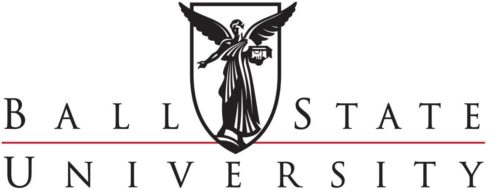
Graduate Tuition/Fees: $9,512
Ball State’s master’s in food science and nutrition online is designed for current or aspiring registered dietitians. The average time to complete the program is two years, including the 11-month internship, which must be completed at various locations throughout Indiana. For those who are already registered dietitians, the program can be completed entirely online. The curriculum is divided into four foundational areas: research, nutrition core, nutrition-directed electives, and electives. This organization ensures an excellent foundation, consistent across the curriculum, and allows the student to tailor the degree to his or her interests. Ball State ranks #95 in top public schools by U.S. News and World Report.
#5 – University of Arkansas
Online Master’s in Food Safety
Fayetteville, Arkansas
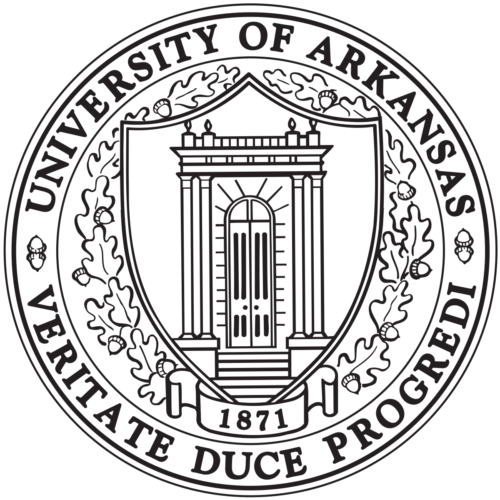
Graduate Tuition/Fees: $8,841
The University of Arkansas offers an online master’s in food science designed for working professionals interested in a degree emphasizing scientific knowledge in food safety, risk assessment, and food quality, based on the standards established by the Hazard Analysis and Critical Control Points food laws and regulations. Courses are taught by the same faculty that teach on-campus classes. The program is 100% online and can be completed in three years or less. Admission is a streamlined process requiring no GRE scores. Graduates of the program have gone on to successful leadership positions across the food industry. Arkansas ranks #153 in national universities according to U.S. News and World Report.
#4 – Liberty University
Online Master’s in Public Health and Nutrition
Lynchburg, Virginia

Graduate Tuition/Fees: $8,400
Ranking number four on our list of most affordable online nutrition programs, Liberty University, a Christian institution, offers a program for those interested in a career in nutrition. The coursework covers an array of topics across the health policy and nutrition spectrum such as disease prevention through nutrition, health disorders, foodborne illness, and food-related public policy. All courses are infused with Christian principles and a Judeo-Christian worldview. The program is specifically designed for working professionals unable to take on-campus courses. Liberty University is lead by President Jerry Falwell and ranks #293 in national universities according to U.S. News and World Report.
#3 – Lamar University
Online Master’s in Nutrition
Beaumont, Texas
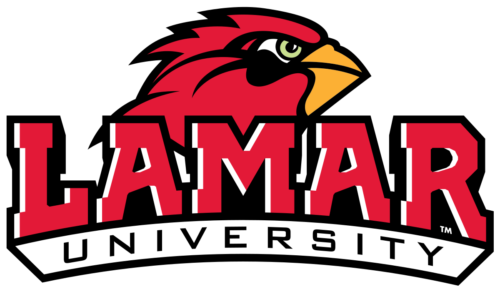
Graduate Tuition/Fees: $8,264
Similar to an online master’s in food science, Lamar University offers a degree in nutrition online with a focus on community nutrition. The degree is presented and delivered entirely online, with no clinical requirement. The online-only structure makes the Lamar program an excellent choice for full-time professionals seeking entrance or advancement into a nutritionally-related career. The 36-credit program can be completed in just 15 months, enabling graduates to reap the benefits of their new degree almost right away. Graduate have gone on to careers in community nutrition, education, research, clinical dietetics, food organizations, and media. Lamar ranks #293 in national universities, according to U.S. News and World Report.
#2 – East Carolina University
Online Master’s in Nutrition
Greenville, North Carolina
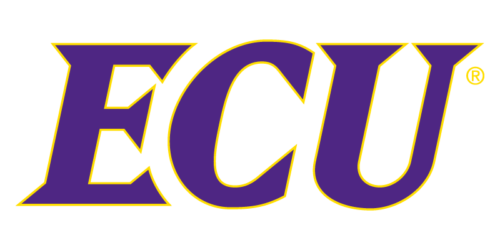
Graduate Tuition/Fees: $7,535
East Carolina University’s College of Allied Health Sciences offers a master’s in food science and nutrition online that provides students and registered dietitians with advanced academic and occupational training. The program welcomes people from all academic backgrounds, but requires candidates to have completed several nutrition-related courses equivalent to 32 credits at ECU. Students with a nutrition degree are exempt from this mandate. GRE scores are waived for applicants with a 3.5 cumulative GPA or those holding a registered dietitian credential. East Carolina University has an outstanding reputation as an online program provider and ranks #228 in national universities by U.S. News and World Report.
#1 – University of Central Arkansas
Online Master’s in Nutrition
Conway, Arkansas
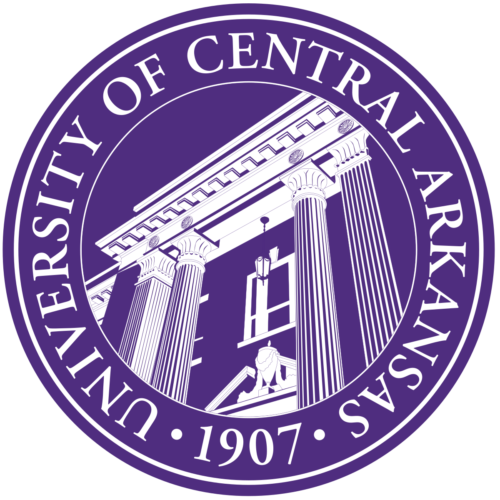
Graduate Tuition/Fees: $6,539
Ranking number one on our list of online food science programs, the University of Central Arkansas’ online master’s in nutrition offers a very affordable graduate degree administered by the university’s Department of Family and Consumer Studies within the College of Health and Behavioral Sciences. As a graduate of this program, individuals are able to establish themselves as thought leaders within the world of nutrition and dietetics. Graduates have gone on to successful careers across industries and sectors including education, healthcare, private industry, and government. For its 2020 rankings, U.S. News and World Report ranked Central Arkansas #293 in national universities and #270 in social mobility.
––––––––––––––––––––––––––––
Frequently Asked Questions
What can you do with an online master’s in food science and nutrition degree?
There are several career pathways that can be taken once you’ve earned your master’s in food science and nutrition. The majority of individuals end up as dietitians and nutritionists working in a healthcare setting. Individuals with master’s degrees in nutrition and food science are eligible to move into administrative positions overseeing individual nutritionists and dietitians and their associated departments.
The main duties of a dietitian or nutritionist include the assessment of their patients’ and clients’ nutritional needs. They assist in the development of meal planning and counseling to promote better health as a result of sound nutritional habits. Many of these dedicated professionals develop customized plans with specific nutritional needs as a result of health issues related to a condition. Many work as employees of healthcare organizations, while others are self-employed or work for non-healthcare organizations. Along with working with individual clients and patients, nutritionists and dietitians also work with groups of people in classroom-type settings.
In addition to these careers, food science and nutrition degrees often lead to careers in food safety and regulation. Food scientists may work for private food companies or for governmental and regulatory organizations where they study food processing, ingredients, public food policy, and the like.
How much money will I earn with a master’s in food science and nutrition online degree?
Compared to the median salary of $39,810 for all occupations, dietitians and nutritionists earn substantially higher salaries ranging from $38,890 – $$87,360 with a median (average) annual salary of $61,270. These figures come from the occupational outlook handbook published by the Bureau of Labor Statistics, which reflects data from May 2019.
When looking more closely at the data, we find nutritionists at outpatient centers earn the highest median salary at $68,000. By contrast, nutritionists and dietitians at nursing and residential care facilities earn the lowest average salary of $59,320. Hospitals and government agency employed nutritionists and dietitians earn $62,110 and $60,670 on average, respectively.
Like most occupations, geographic location impacts salary levels and employment opportunities. California, Alaska, and Massachusetts rank 1-3 in average pay ranging from $77,040 – $72,610. While Alaska pays well above the national average for this occupation, it should be noted the sample size is relatively small at 140.
Metropolitan areas with the highest levels of employment include New York/Newark; Los Angeles/Long Beach; and Chicago/Naperville. New York and Los Angeles pay well above the national average in salary, with Chicago salaries right at the median. Individuals with a master’s in nutrition and food science should expect to earn above the average salary due to their education level.
What classes will I take while enrolled in an online master’s in food science and nutrition degree?
Most online master’s in food science and nutrition programs are science-based while also integrating coursework from a variety of disciplines. Because there are so many salient factors that impact nutrition and food science, most academic departments overseeing this type of degree like to expose their students to coursework in food policy, sociology, psychology, and mathematics, in addition to the coursework in traditional science courses such as biology, physiology, nutrition, chemistry, and the like. Programs that are focused on food science will include coursework on food systems, food system management, food policy, and environmental science.
Many programs require undergraduate prerequisite courses, either as admission requirements or as part of the program once the student is admitted. These courses typically include general biology, general chemistry, college algebra, statistics, and nutrition. These are all common courses within the undergraduate majors of nutrition, biology, and other related majors. They can be taken at a four-year institution or a community college.
Once students matriculate to a master’s level program, they will take a methods course in nutritional research, which assists them in learning common research methodologies in the field. This is a critical class as students will employ these methods if they choose to complete a graduate thesis as part of the curriculum. Other classes include advanced nutrition, biology, and physiology classes and food policy courses.
How long does it take to earn an online master’s in food science and nutrition degree?
Online food science and nutrition degrees vary in their time to complete, as do most online degrees. Because they are structured for working professionals with a variety of non-academic responsibilities such as work and family, they allow for varying enrollment levels ranging from full- to part-time.
Most programs consist of a minimum time to complete and a maximum time to complete. They commonly range from 1-5 years, which shows just how much variance there can be. The two most common factors impacting the time it takes to complete the degree are the program structure and the individual goal set by the student.
Cohort-based programs are often lock-step in nature and more rigid. All students matriculate at the same time and take the same courses in a specific sequence. These programs tout the benefits of online networking and engagement with students that increase due to taking courses with the same people. That doesn’t mean cohort programs take longer. In fact, many can be completed in two years or less, but there are many that are designed to take 3-4 years. Non-cohort programs also vary in structure, but do provide latitude to individual students. What takes one student 12-18 months to complete may require 3-5 years for another student. In contrast to cohort programs, these variegating timelines are due to individual circumstance.
What are the admission requirements for most online master’s in food science and nutrition programs?
Admission requirements for online masters in food science and nutrition programs tend to take three distinct tracks. Below we take a look at the three in detail.
The first type of program are the ones that allow both current and aspiring nutrition and food science professionals entry into a program without professional or academic experience. These programs are typically not as scientifically based and require a bachelor’s degree from an accredited institution with a 2.5-3.0 minimum GPA. Some of these programs may require a few prerequisite courses such as general biology and a college math course. GRE scores are typically not required.
The second type of program requires students to have at least two years of experience in the food science or nutrition industry and at least a minimum number of related courses such as those stated above. Beyond that, they still allow individuals with a bachelor’s degree of any kind to apply and matriculate.
The final type of program is the most restrictive and requires a bachelor’s degree in either nutrition or a natural science, along with professional experience in a related career field. These programs may even require students to be registered nutritionists or dietitians. There are certainly enough of these different types of programs out there to find the right one to meet your needs.
BCO Staff
June 2020
Additional Resources:
- Affordable Online MBA Programs
- Affordable Online MBA No GMAT
- Top 10 Affordable Online Bachelor’s Degree in Culinary Arts Programs
- Top 10 Most Affordable Online Master’s in Health Education Programs